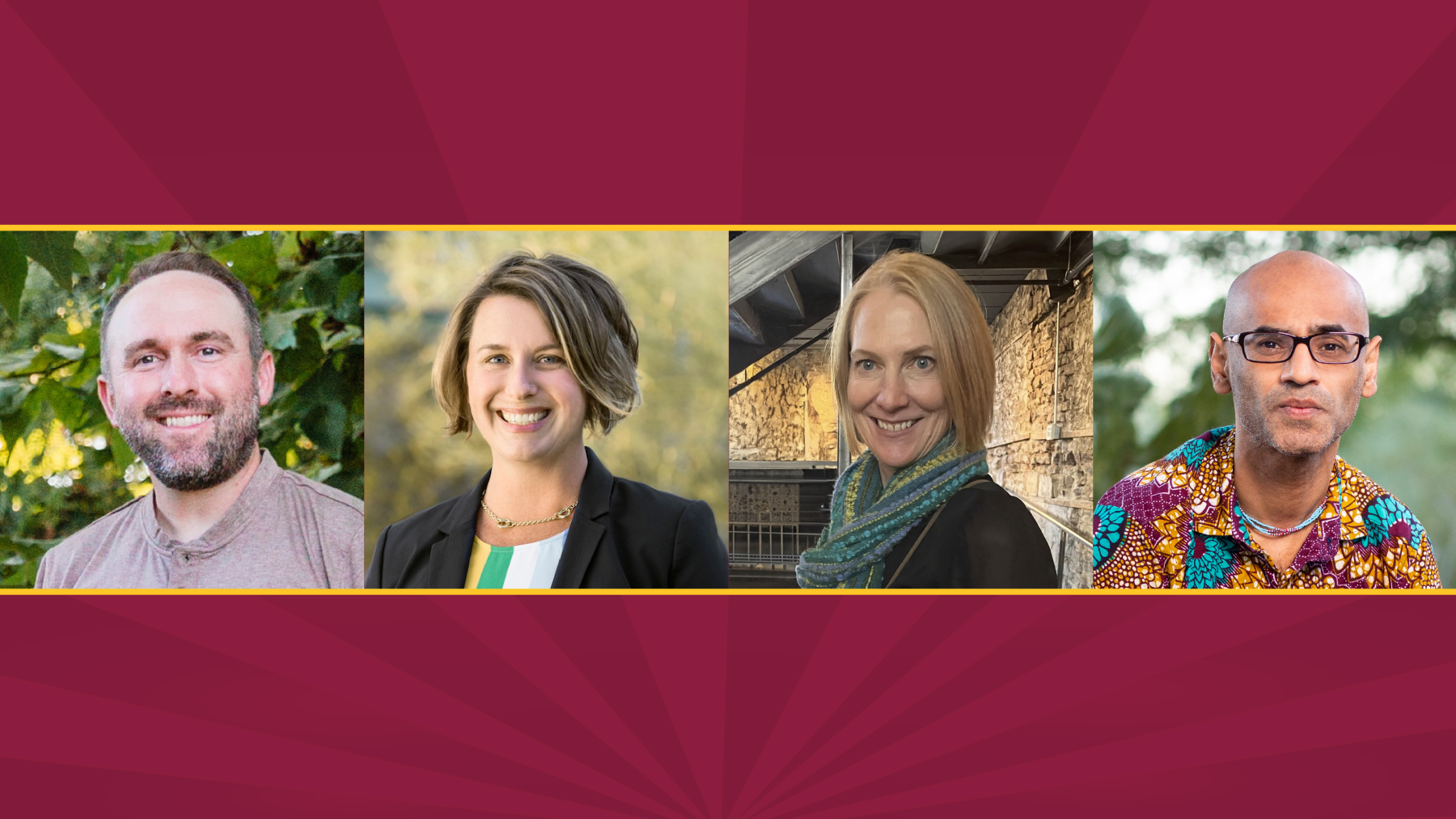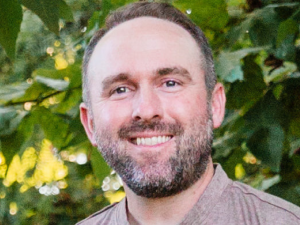
Allan Colbern - Outstanding Faculty Mentor awardee spotlights
As we celebrate this year’s Outstanding Faculty Mentors, we would like to showcase the winners’ remarkable work in mentoring. Their stories illustrate the profound impact of mentorship on both the mentor and mentee. These heartwarming testimonials aim to express their gratitude for the difference their mentor has made in their lives. We are fortunate to have such dedicated and caring individuals as mentors in the ASU community!
Allan Colbern - Outstanding Master’s Mentor
Assistant Professor, Social and Behavioral Sciences, New College of Interdisciplinary Arts and Sciences
Allan Colbern is co-director of the Master’s in Social Justice and Human Rights program and assistant professor of political science in the School of Social and Behavioral Sciences. His research is on American politics, social movements, citizenship, federalism, public policy, race, and immigration.
What does being recognized as an Outstanding Faculty Mentor mean to you?
This award means I am succeeding in creating a welcoming, supportive, and collaborative community between myself and the students I work closely with within the social justice and human rights master’s program. It is also a recognition of the incredible support from my wife, Shima and our two kids, Maya and Kilian. They support and empower my career tremendously, allowing me to step away to meet with students.
What is the value of mentorship?
Mentorship is foundational for the success of academic programs, faculty and students. It is invaluable to forging reciprocal, nurturing and collaborative faculty-student relations, opening space for faculty-student community building within programs, and creating opportunities for students’ professional and scholarly development. The most valuable parts of mentorship are relational and community-oriented. I love sharing interests and collaborating in research and advocacy with students. Navigating academia as a first-generation student, I learned to self-advocate with few resources. Having gone through this experience, I thrive working with students from diverse lived experiences, academic starting points and career trajectories. I have chaired numerous master’s and undergraduate student projects and served on many more committees.
There is tremendous creative and synergistic potential in how one approaches mentorship and inclusion. When our online master’s program launched in pandemic times, I spent a lot of time thinking critically about creating collaborative, intentional spaces and opportunities for students to plug into my existing research and advocacy work. I wanted to create a sustainable mentorship model built around my expertise in immigration and immigrant rights and mentoring online and in person. This has been incredibly valuable for my students, me, and our self-definition of community in the Social Justice and Human Rights master’s program. I am proud to see many of my mentees in PhD programs, law schools and growing incredible careers in non-profit organizations.
Do you have any advice for a new mentor?
Yes, to create openings for students to join their projects, share their lived experiences in addition to disciplinary expertise, and create an intentional and sustainable space each week for the work of mentoring.
Allan Colbern's nominating mentee: Katie Glenn
What is the value of mentorship? How has it impacted you academically, professionally or personally?
Mentorship, especially in a graduate setting, is invaluable. It creates a sense of connection and community in a supportive environment where students gain confidence, set and achieve goals and overcome hurdles. This knowledge transfer from mentor to mentee enhances skills and capabilities and contributes to the individual's overall growth. It empowers students to become the best version of themselves as they grow in their academic journey.
As a first-year, non-traditional student, I had no bearing or guide when entering a graduate program. Having someone to take me on as a mentor helped me navigate the workings of a graduate program and the unspoken norms that I would not be privy to on my own. This mentorship helped foster a sense of confidence in my ability to undertake my degree and helped me understand what I wanted to achieve, both academically and professionally.
Why did you nominate your mentor?
I decided to nominate Professor Colbern for this award because of his impact on his students and the trajectories of their careers. He takes a personalized approach to mentorship for each student based on their academic and professional aspirations. Through this approach, he tailors his mentorships to help his mentees achieve success, whatever that looks like for them.
Through Professor Colbern’s guidance and mentorship, I could see that my love was in academia and research, prompting me to pursue a PhD following graduation. Professor Colbern began including me in major research projects to help guide me and give me firsthand knowledge of the research process. Not only did this result in multiple academic publications, but it also furthered my understanding and love for this research and helped me to find my voice in my research agenda. He also guided me through the PhD application process and has continued to support me as a former student, co-author and now friend as I navigate academia and my future.
More stories from the Graduate Insider

Graduate funding deadlines for Fall

How to feel confident in your next interview
Let’s be honest, interviews can feel nerve-wracking. Your palms sweat, your heart races, and you start to second-guess whether you even remember your own name. But here’s the good news: with a little preparation, you can walk into (or log onto) your next interview feeling calm, collected, and ready to shine.

